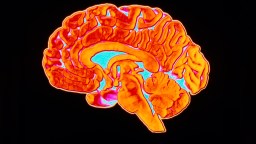Health
All Stories
A new Yale-Harvard study categorizes gun violence as a social contagion and a public health epidemic. If nothing changes, over 33,000 people will die at the end of a gun this year in the United States.
Canadian scientists discover how being bilingual creates advantages for the brain.
Everybody wants to be happy, right? Who wouldn’t try to get as many pleasurable experiences as they could? Well, if this philosopher is right. You wouldn’t.
Just like alcohol, nicotine and other narcotics, sugar tickles our dopamine receptors in just the right way, inspiring our brain’s reward system. How will this end for us?
Scientists are finding that loneliness has real medical consequences, and the brain sees it as pain.
Today, a person’s organs will be harvested, whether or not their family is against it.
Researchers at the American Chemical Society examine whether or not cough medicine has scientific merit.
Is the technology of the future more radical than the technology of the past? Alison Gopnik provides some historical perspective.
▸
5 min
—
with
Scientists create a portable device that can detect 17 diseases, including 8 different cancers, straight from a person’s breath.
Animal-assisted therapy is increasingly being used nowadays. But does this practice make an impact?
One reason: women perceive men with tattoos as more likely to cheat.
Taking pain relief at the first feelings of a headache may mask an underlying condition. Use long-term treatments designed for migraines, says the director of Yale’s Headache and Facial Pain Center.
Hans Rosling was a physician and statistics superstar who advised world leaders and tech tycoons.
A new study says running enhances connectivity in areas of the brain associated wth high-level thinking.
“Lifelong learning is extremely important,” says Nobel laureate Dr. Eric Kandel, “and the more we learn about life span the more important we realize it is.”
▸
7 min
—
with
New research out of the University of London shows that some viruses are more likely to kill men than women. Here’s why.
“Memory is a poet,” Marie Howe once remarked, “not an historian.” When it comes to fake news, our minds can be easily and permanently misled.
A new study finds that having a single extra chromosome may reduce the chance of cancerous tumors. But like everything, it’s a balancing act.
A Harvard University study of women finds a link between optimism and risks of dying from a number of diseases.
MRI study finds brains of ASD subjects are more symmetrical than typical brains, which makes sense.
If hate is a virus, the U.S. has got it bad. Oliver Luckett presents a fascinating perspective on how the 2016 election divided America, how social media mimics biology, and how the U.S. can start to rebuild.
▸
10 min
—
with
Philip Morris is looking to wind back manufacture of its traditional cigarettes in favor of e-cigs. Why? Because the younger demographic is hooked.
Studies: One Dose of “Psilocybin” from Magic Mushrooms Relieves Depression in 80% of Cancer Patients
New studies from NYU and John Hopkins University show the effectiveness of psilocybin in treating depression and anxiety of cancer patients.
Scientists at the food giant reportedly found a novel way of altering the molecular structure of sugar.
Researchers scan the brains of people having strong spiritual experiences.
A rash of teen idols, singers, actors, and actresses have all come out recently detailing their struggles.
Harvard bioethics specialist Glenn Cohen considers the complex question of whether humans should mix their genetic material with other animals to create chimeras.
▸
6 min
—
with
The surgeon general is pleading for a fundamental shift in how we think about addiction.
A study of close to 20,000 men provides some stark conclusions on the relationship between male sexism and mental health.
Would you be cryo-preserved, knowing that if you survived, you would wake up hundreds of years later?





























